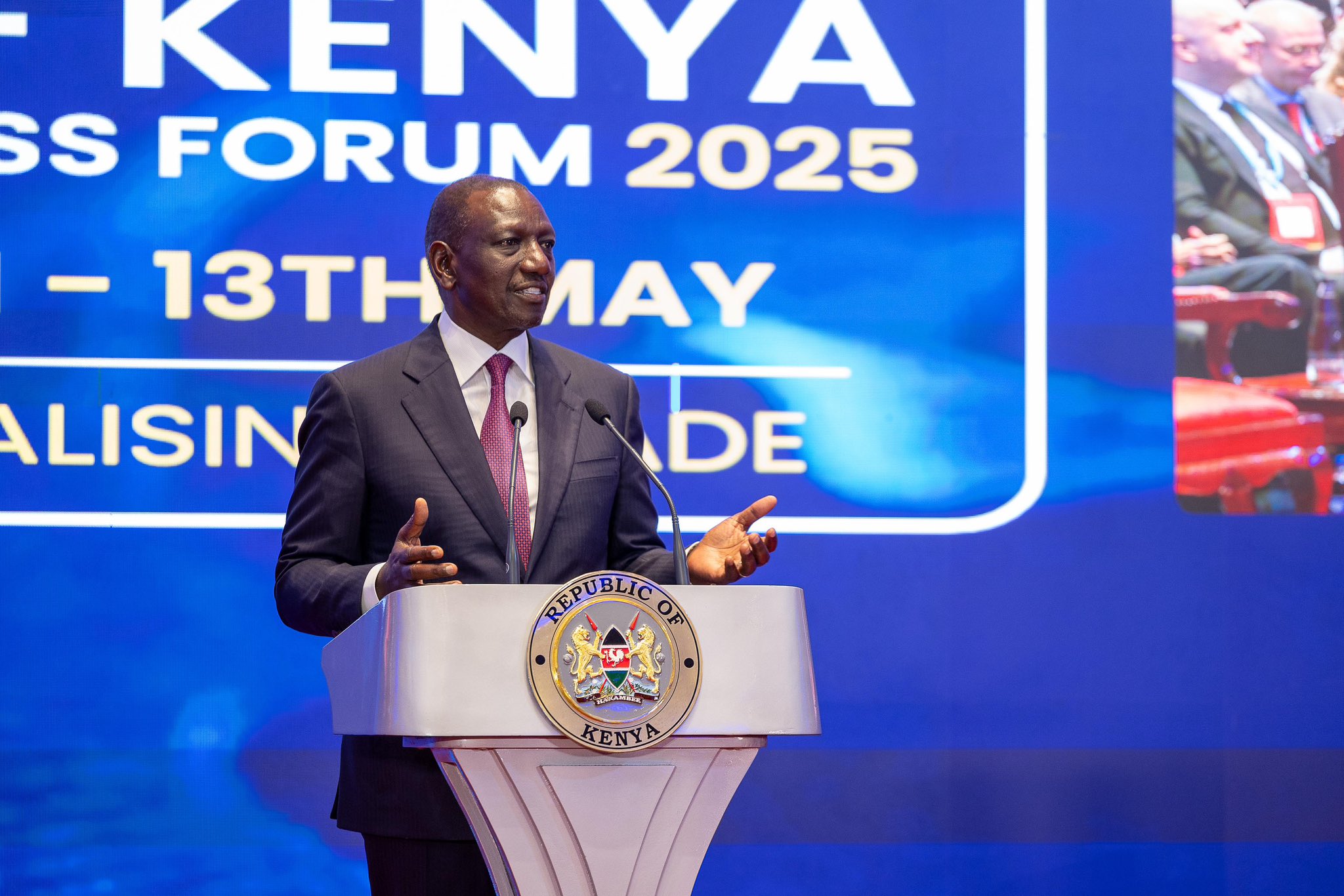State slashes digital transfer tax to 1.5 per cent to boost tech sector

Ruto said the move is part of broader efforts to create a pro-business environment that supports start-ups, Micro, Small, and Medium Enterprises (MSME’s) and the digital economy.
The government has halved the tax on digital asset transfers from 3 to 1.5 per cent in the Finance Bill, 2025, in a bid to boost innovation, attract investors and position Kenya as a regional tech powerhouse.
Speaking on Monday at the Kenya-European Union Business Forum, President William Ruto said the move is part of broader efforts to create a pro-business environment that supports start-ups, Micro, Small, and Medium Enterprises (MSME’s) and the digital economy.
More To Read
- Ruto raises research funding to 2 per cent of GDP in bid to expand digital economy
- Communications Authority of Kenya takes LSK to court over controversial cybercrime law
- From detention to global recognition: Rose Njeri named in 2025 Time100 Next list
- Kenya nets Sh2.3 billion from international digital service providers
- President Ruto cites big wins in jobs, digital economy and housing in 3-year scorecard
- One in four Kenyans remain jobless, TIFA survey shows
“To support this growth, we have introduced tax reforms that foster a pro-business environment. The Finance Bill, 2025, reduces the tax on digital asset transfers from 3 per cent to 1.5 per cent. This signals our commitment to an innovation-driven economy that nurtures start-ups, MSMEs, and investors alike,” Ruto said.
He noted that Kenya is attracting global technology giants, including Microsoft, Amazon Web Services, and Apple, all of which have established a presence in the country. At the same time, he said leading business process outsourcing (BPO) firms such as Sama, CCI, and Teleperformance have anchored their operations in Kenya.
“These efforts are already bearing fruit. Just last month, the International Monetary Fund ranked Kenya as the sixth-largest economy in Africa, projecting our GDP to reach 132 billion dollars in 2025,” the President said.
“Our currency also appreciated by 21 per cent in 2024, making it one of the best-performing currencies globally. These achievements reflect the sound reforms and bold measures implemented over the past two and a half years.”
As part of his administration’s broader push to accelerate the digitisation of trade and economic services, Ruto outlined a transformative plan to strengthen the digital economy. A key pillar of the plan is the rollout of a last-mile fibre connectivity programme, intending to lay 100,000 kilometres of fibre optic cable and establish 25,000 public Wi-Fi hotspots by 2027.
“We are implementing bold and transformative measures to build a robust digital economy,” said Ruto.
Digitisation of govt services
Through the expanded e-Citizen platform, the Head of State noted that over 20,000 government services have now been digitised. He said this has made it easier, faster, and more affordable for businesses and citizens to interact with government agencies.
To equip young people with digital skills and promote innovation, the government has also established 284 digital hubs in Technical and Vocational Education and Training (TVET) institutions, with an additional 400 currently under construction.
“These hubs are becoming vital centres of innovation, enterprise, and digital skills development,” he said.
Ruto also highlighted the significant strides made following the entry into force of the Kenya-EU Economic Partnership Agreement (EPA). He described the implementation of the historic agreement as a major milestone for the country, marking a new phase in Kenya’s trade relations with the European Union.
“Significant strides have been made in operationalising this historic agreement, including its ratification and the convening of the EPA Senior Officials Meeting, which culminates in the inaugural EPA Council later today,” Ruto said. “We look forward to its full implementation to ensure shared prosperity between Kenya and the EU," he said.
The President urged the EPA Council to explore innovative ways to unlock the vast potential of Kenya-EU trade while addressing current and emerging barriers to economic growth. He stressed the importance of translating good intentions into actionable outcomes that would deliver tangible benefits to businesses, investors, and citizens.
A major highlight of the forum was the launch of the European Union Chamber (EuroCham), which Ruto hailed as a new chapter in deepening Kenya-EU private sector collaboration. He encouraged the establishment of a Kenya-EU Business Council between EuroCham and the Kenya National Chamber of Commerce and Industry to foster a unified voice and focused agenda.
“Our partnership with the European Union has been instrumental in driving development cooperation in energy, infrastructure, water and sanitation, urban development, agriculture, and other key sectors,” Ruto said, acknowledging the role of the EU Delegation to Kenya and the European Investment Bank, whose Eastern Africa regional headquarters are in Nairobi.
He expressed anticipation for the upcoming African Union-European Union Ministerial Meeting later this month in Brussels, where Kenya would push for continental priorities in trade, investment, and sustainable development.
Top Stories Today















































